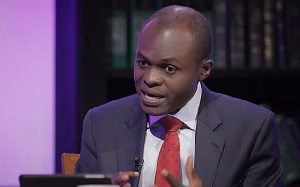Legal practitioner Martin Kpebu has intensified scrutiny of Ghana’s 1992 Constitution, likening its framework for judicial appointments to a “buy-one-get-one-free” arrangement that grants the executive branch disproportionate influence over the judiciary.
During a recent appearance on TV3’s KeyPoints, Kpebu criticized Article 144, which empowers the president to appoint justices “in consultation” with the Council of State and Parliament, calling the provision a gateway to political interference.
“Our constitution is structured so that controlling the executive comes with indirect control of the judiciary,” Kpebu stated on May 3. “Through appointments and financial leverage, the judiciary risks becoming an extension of executive power.” He condemned this dynamic as “unwieldy” and “undemocratic,” arguing it undermines the separation of powers a cornerstone of democratic governance.
Kpebu further rebuked the constitutional text for assuming politicians would exercise authority with unimpeachable integrity, a premise he dismissed as naive. “The drafters imagined presidents as philosopher-kings, but humans are flawed,” he said. “Laws must account for human shortcomings, not wishful thinking.” His remarks amplify longstanding demands for reforms to insulate judicial processes from partisan manipulation and clarify appointment procedures to ensure transparency.
The critique extends beyond constitutional structure to institutional conduct. Kpebu separately challenged the Ghana Bar Association (GBA) for labeling its recent statement on Chief Justice Kwasi Anin-Yeboah’s suspension a “resolution,” a term he claims politicized the issue. “Calling it a resolution invites partisan interpretation,” he argued. “Had it been framed as an appeal for restraint, I would endorse it.” He also questioned the GBA’s decision-making process, citing inadequate member consultation and poorly timed deliberations during its annual conference.
Kpebu’s dual focus on constitutional flaws and institutional rhetoric underscores a broader reckoning with Ghana’s judicial independence. Analysts note that vague constitutional language, such as Article 144’s “consultation” clause, has fueled executive overreach concerns for decades. These debates resurface amid public skepticism over delayed court rulings and allegations of judicial corruption, reinforcing calls for systemic safeguards.
Ghana’s judiciary, once hailed as a regional beacon of stability, now faces pressure to address structural vulnerabilities. Legal scholars argue that constitutional clarity is vital to restoring public trust, particularly as the nation grapples with the legacy of past authoritarian regimes. Kpebu’s analogy of a “buy-one-get-one-free” system while stark reflects deepening frustration over the blurred lines between political and judicial authority. As demands for reform gain momentum, his critique encapsulates a central challenge: crafting laws that constrain power rather than enable its abuse.
